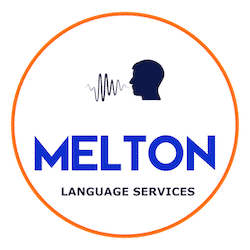How can I pass the Speaking part of English exams?
Most exams, such as IELTS, SLP, and all of the Cambridge exams, involve a speaking part or interview. These can either be individual, or as with the Cambridge exams, with another student.
The Speaking part of English exams are often the most worrying and stressful for students, so here are some ideas to help you when you are doing the speaking part of English exams. If you practice these with your teacher beforehand, the speaking part of the exam should become much easier. Just remember the more you practice the better you will perform on exam day.


First Impressions
The examiner is human and first impressions count. Don’t just say hello, say “ Hi, nice to meet you“ and smile.
Sell your English
This is the most important thing in any speaking exam. You have 10,15,20 minutes, depending on the exam, to convince the examiner you have the correct level to pass. Remember, before you start speaking, the examiner has no idea of your English level, it is your job to convince them.
Prepare your introduction
In almost all exams you will have to give a short presentation of yourself. You can prepare this beforehand and use language to impress the examiner. Look at the differences below
Student A: I am Pedro. I study English and I like football and I live in Madrid.
Student B: My name is Pedro and I have been studying English for 6 years. I’m really keen on football and I live near the center of Madrid.
Which student has “SOLD” their English and impressed the examiner?
Use good vocabulary
It is impossible to know the topics you have to talk about but learn good descriptive adjectives for people and places. Practice describing people and places with your teacher. Adjectives are a great and easy way to show good vocabulary, the grammar is easy, verb to be + adjective and you can create a really good impression.
Prepare the photographs
Almost all exams involve describing a photo or photos. Learn how to speak about the different areas of a photo.
Student A: In the photo there is a black dog and also a man walking with his child.
Student B: In the foreground, there is a man walking with his child and in the background you can see a black dog.
Which student has “SOLD” their English and impressed the examiner?
Make sure you know the grammar for comparative language. You often have to compare photos. Learn contrast links like however or on the other hand.
For example: In this photo the street is really crowded; however, in the other photo the road looks deserted.
Listen to the other people in the room
Listen to what your partner is saying. Most students are thinking of what to say next and not listening to what their partner, the other student, is saying. Often, the examiner will then ask you a question related to what was said, if you haven’t been listening, you can’t answer!!!
Ask for something to be repeated, if you don’t understand.
This is a really common mistake for students and something that an examiner will penalize you for. If you don’t understand the examiner, or the other student’s question, don’t guess. The worst thing you can do is answer a question that wasn’t asked.
Learn phrases like, “ I’m sorry, I didn’t catch/get that, could you repeat it/the question please.” This is much better than, ” I don’t understand.”
More Tips for Passing the Speaking Part of English Exams
What is the examiner looking for? The problem with too simple or complicated sentences. Get the balance right.
This depends to some extent on the level of the exam but there are certain things the examiner always looks for:
- Fluency
- Pronunciation
- Spoken grammar
- Vocabulary
- Understand the examiner and other student.
As well as wanting to be impressed, the examiner is also listening for mistakes, so it is really important to get a good balance. Sentences shouldn’t be too simple, but if you try to make really complicated sentences you will make too many mistakes and your fluency will decrease. You won’t pass an exam with very simple sentences, but you won’t pass with lots of mistakes. Practice this balance with your teacher.
Contact Us About Your Language Training Needs
About
At Melton Language Services, we provide professional English training to ministries and companies that need fast results with specific needs. Our dynamic methodology gives companies the tools they need to ensure their employees have the professional skills they need to be effective. Individual or group, private or public sector. We provide the service you need and deserve.


0 Comments